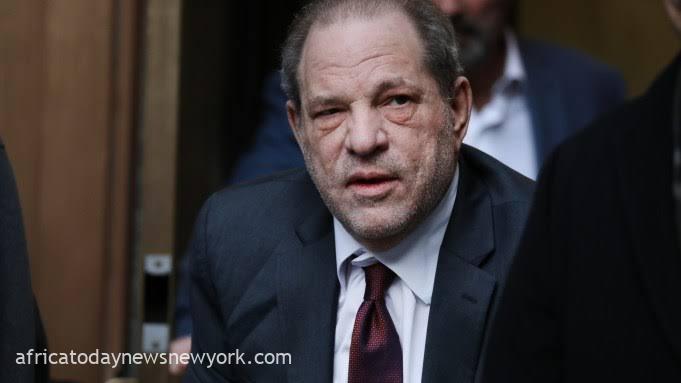The 2020 rape conviction of disgraced Hollywood mogul Harvey Weinstein has been overturned by a New York court.
The decision has been met with shock and disappointment by many, who see it as a setback for the #MeToo movement and a failure of the justice system to hold perpetrators of sexual violence accountable.
The New York Court of Appeals has identified a key flaw in the prosecution’s strategy in the Harvey Weinstein trial, noting that witnesses were called to testify about incidents not directly related to the charges at hand, potentially swaying the jury’s verdict.
The court’s decision to grant Harvey Weinstein a new trial is a testament to the importance of upholding due process and ensuring that individuals are not tried for past behavior, but rather for the specific crimes with which they are charged.
Although the New York Court of Appeals overturned Harvey Weinstein’s 2020 rape conviction, he remains incarcerated due to a separate rape conviction in Los Angeles, for which he received a 16-year sentence.
Victims’ advocacy group The Silence Breakers has denounced the reversal of Harvey Weinstein’s conviction as disheartening and very unjust, while legal representatives for the victims have slammed the decision to retry as a devastating setback and a tragic reminder of the systemic failures that perpetuate sexual violence.
Read also: Trump’s Historic Hush-Money Trial To Begin In New York Today
The court reached a 4-3 ruling on Thursday, stating that the trial “erroneously admitted testimony of uncharged, alleged prior sexual acts against persons other than the complainants of the underlying crimes.”
The decision also said the trial judge compounded the error by letting Weinstein be cross-examined in a way that portrayed him in a “highly prejudicial” light.
“The remedy for these egregious errors is a new trial.”
Judge Madeline Singas, one of the dissenters, however said that with the decision, “this Court continues to thwart the steady gains survivors of sexual violence have fought for in our criminal justice system”.
Accusations against Weinstein began in 2017 and sparked the #MeToo movement, which exposed sexual abuse at the highest levels of the Hollywood film industry and beyond.
He faced two trials. In New York, he was jailed for 23 years in 2020 for sexually assaulting a former production assistant in 2006, and raping an aspiring actress in 2013.
In a separate legal development, he received a 16-year prison sentence in California last year for the 2013 sexual assault of an Italian model and actress at a Beverly Hills hotel. This conviction stands, unaffected by the appeal outcome in New York.
Weinstein’s legal troubles extend beyond American shores, as he faces two charges of indecent assault in the United Kingdom, adding to his growing list of criminal allegations.
Harvey Weinstein is presently incarcerated at New York’s Mohawk Correctional Facility, a far cry from his former life of luxury and power. Prior to his current confinement, he was extradited to Los Angeles to face additional charges, marking a significant milestone in his downfall.
With the appeal decision handed down, the spotlight shifts to Manhattan District Attorney Alvin Bragg, who must now determine whether to retry Weinstein in New York. Bragg assumes responsibility for the case from his predecessor Cyrus Vance, and his decision will have significant implications for the future of the prosecution.
“We will do everything in our power to retry this case, and remain steadfast in our commitment to survivors of sexual assault,” said Emily Tuttle, a spokesperson for Mr Bragg.
Alvin Bragg’s office is currently tackling two of the most sensational cases in the country, as it prosecutes both Harvey Weinstein and former President Donald Trump.
The latter case, involving hush-money payments, is a separate criminal trial that has the nation riveted, and Bragg’s team must navigate both cases with precision and skill.
